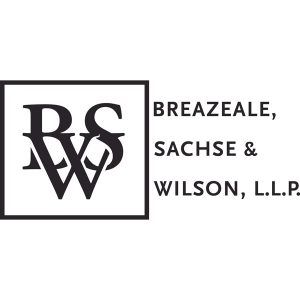Internal Revenue Code (IRC) Section 30D provides a tax credit with respect to each new clean vehicle that a taxpayer purchases and places in service. Section 30D has been amended several times, most recently by the Inflation Reduction Act of 2022 (the IRA). The discussion of credits for qualified previously owned or used clean vehicles under IRC §25E is beyond the scope of this article.
A taxpayer may qualify for a credit of up to $7,500 under IRC §30D if the taxpayer buys a new, qualified plug-in electric vehicle (EV) or fuel cell electric vehicle (FCV). The IRA changed the rules for this credit for vehicles purchased from 2023 to 2032.
The amount of the credit depends on when the taxpayer placed the vehicle in service, regardless of the purchase date. Prior to the amendments made by the IRA, the base amount of the credit was $2,500 plus $417 for a battery with a capacity of at least five kilowatt hours and an additional $417 for each kilowatt hour of capacity in excess of five kilowatt hours, up to a maximum credit of $7,500 per vehicle. However, the IRA amended IRC §30D to provide a maximum credit of $7,500 per vehicle, consisting of $3,750 in the case of a vehicle that meets certain requirements relating to critical minerals and $3,750 in the case of the vehicle that meets certain requirements relating to battery components. The amendments made by the IRA apply to vehicles placed in service on or after April 18, 2023.
To qualify, a vehicle must have a battery capacity of at least seven kilowatt hours, have a gross vehicle weight rating of fewer than 14,000 pounds, be made by a qualified manufacturer, undergo final assembly in North America and meet critical mineral and battery component requirements.
The sale qualifies only if the buyer buys the vehicle new and the dealer reports the required information to the buyer and the IRS. In addition, the vehicle’s manufacturer suggested retail price can’t exceed $80,000 for vans, sport utility vehicles and pickup trucks, or $55,000 for other vehicles. A buyer can also go to www.fueleconomy.gov to see if their vehicle is eligible for the new clean vehicle credit.
The dealer’s first step in reporting is to register your business as a vehicle seller or dealer on IRS Energy Credits Online.
Register here: https://www.irs.gov/credits-deductions/register-your-dealership-to-enable-credits-for-clean-vehicle-buyers
For eligible clean vehicles placed in service on or after Jan. 1, 2024, the dealer or seller must submit all reports through IRS Energy Credits Online within three (3) calendar days of the date of sale at the website available by clicking the link above. The dealer or seller must also provide the buyer with a copy of the accepted seller report submitted to IRS Energy Credits Online within three (3) calendar days of the date of submission. For more information on submitting time of sale reports, see IRS Publication 5863, “A Step-by-Step Guide for New and Used Clean Vehicle Dealers and Sellers for the Energy Credits Online,” as well as IRS Publication 5867-A, “Clean Vehicle Time of Sale Reporting User Guide.”
As IRS Energy Credits Online provides real-time confirmation of a vehicle’s eligibility using VINs provided by manufacturers, it is strongly recommended that this submission occur prior to finalizing a sale and when the buyer places the vehicle in service.
For vehicles placed in service in 2023, the information provided to the IRS is detailed in IRS Rev. Proc. 2022-42. Dealers or sellers must file reports within 15 days after the end of the calendar year (i.e., Jan. 15, 2024). The IRS had extended the due date for sellers and dealers to provide these reports to the IRS until Jan. 31, 2024.
For vehicles placed in service in 2024 or later, providing the buyer with a copy of the seller report submitted to IRS Energy Credits Online and the confirmation that the IRS accepted the submission meets the seller’s reporting obligation. The IRS on Jan. 5, 2024, announced an extension for dealers and sellers of clean vehicles to submit time-of-sale reports. Sellers reporting on IRS Energy Credits Online became available on Jan. 1, 2024. To provide dealers and the IRS more time to submit and intake seller reports into this new system, the IRS temporarily extended the 3-day time period to submit time-of-sale reports provided in Rev. Proc. 2023-38 through Jan. 16, 2024. That meant dealers had until Jan. 19, 2024, to submit a time-of-sale report for vehicles sold from Jan. 1, 2024, to Jan. 16, 2024.
In order to claim the credit, the taxpayer must generally file IRS Form 8936, Qualified Plug-In Electric Drive Motor Vehicle Credit, with the taxpayer’s tax return. Beginning on Jan. 1, 2024, buyers can now elect to transfer their expected credit to a registered dealer, who will receive advance payments from the IRS in exchange for discounting the price of the vehicle. Buyers are limited to two transfers per year for their SSN/TIN. The new rule allows buyers to claim the tax credit at a participating dealership at the point of sale.
If you have any questions about the Tax Credits for Clean Vehicles, please do not hesitate to contact me.
Lance Kinchen is a partner in the Baton Rouge office of Breazeale, Sachse & Wilson LLP. His principal areas of practice include automotive, corporate law, taxation, mergers and acquisitions, business succession planning, estate planning and probate administration. Contact Lance at lance.kinchen@bswllp.com.











